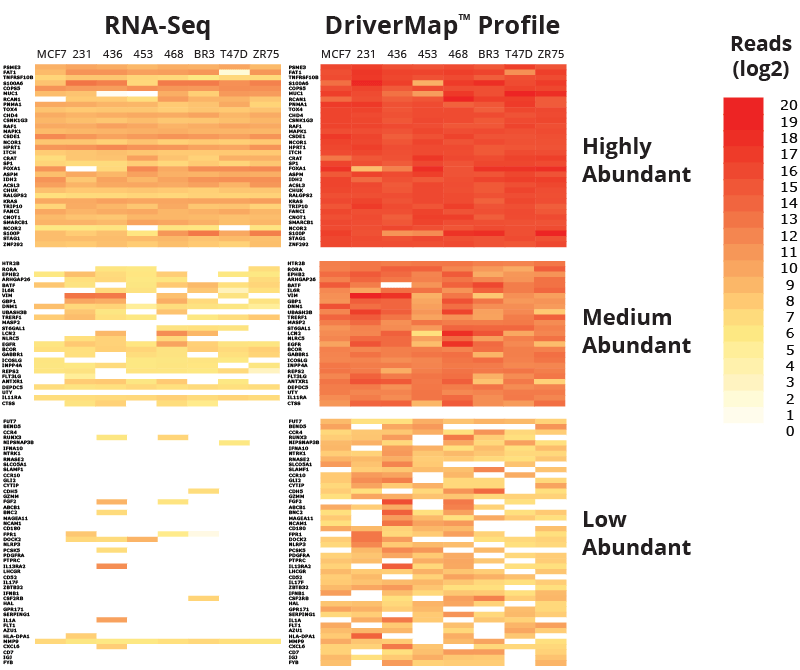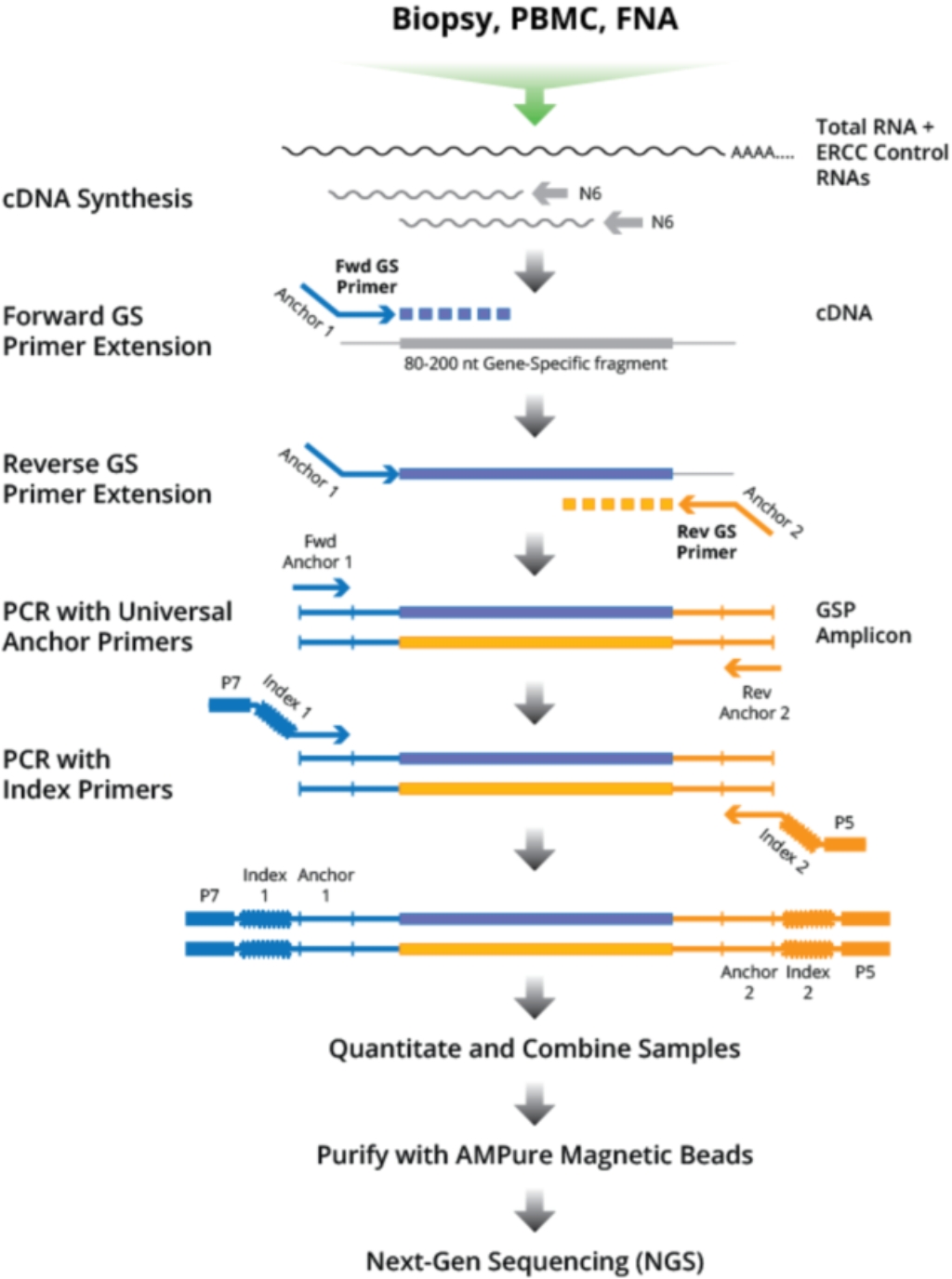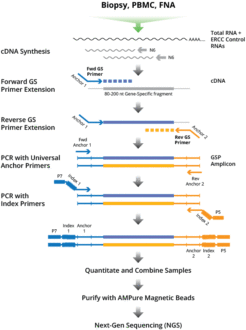Targeted RNA-Seq Kits
DriverMap Targeted RNA Sequencing

Targeted expression analysis that combines the sensitivity of multiplex PCR with the dynamic range and throughput of NGS
- Single-tube, one-day protocol starting with as little as 10 pg total RNA
- Higher sensitivity for low expressed genes than RNA-Seq with 10-fold less sequencing depth required
- Simplified analysis against reference sequences—no genomic alignment bioinformatics needed
The DriverMap™ Genome-Wide Targeted Expression Profiling Platform enables targeted multiplex PCR amplification and next-generation profiling to measure the expression levels of up to 19,000 human protein-coding genes or up to 5,000 mouse genes in a single assay. By combining highly multiplexed RT-PCR amplification with the depth and precision of next-generation sequencing (NGS) quantitation, the DriverMap assay provides convenient, comprehensive, highly sensitive, and quantitative measurement of gene expression from as little as 10pg of total RNA.
How it works

Rather than reverse-transcribing the whole transcriptome, the DriverMap assay combines multiplex RT-PCR amplification to amplify defined and conserved 80- to 200- base regions of the targeted genes, and then uses next-generation sequencing (NGS) to quantitatively assess abundance levels of each of these transcript amplicons.
There are significant advantages to targeting, amplifying, and sequencing carefully selected discrete loci of interest in the expressed transcriptome. Gene-specific primers that target each gene of interest obviate the need for RNA preparation to remove unwanted sequences such as ribosomal RNA, beta-globins, or other non-coding RNA. Only transcript sequences matching the targets of interest are amplified. Therefore, only a small amount of total RNA is needed for this highly sensitive assay. As little as 10 pg of total RNA from single-cell lysate is enough to detect most target transcripts.
Also, the NGS read depth required to reliably read several thousand targeted amplicons is much less than the depth required for the whole transcriptome. As a result, the targeted approach detects lower-abundance expressed transcripts more consistently and reliably than other RNA-seq approaches and much less sequencing depth is required.
Analysis of the sequencing results is much simpler with the DriverMap targeted approach since each amplicon corresponds to a known reference sequence. There is no need to estimate gene copy number from assembled cDNA fragments. With targeted RT-PCR the read levels of each amplicon directly correlate to the expression levels of the target transcript. The analysis can be done entirely on an Excel spreadsheet using housekeeping genes as references in a manner similar to standard qRT-PCR. Software is included with the DriverMap kit to enable this amplicon alignment and to generate a spreadsheet of read counts for targets directly from the Illumina FASTQ file.
Applications:
The DriverMap assay starts with total RNA. The targeted, in-lab validated primers used in the DriverMap assay specifically amplify the target transcript amplicon sequences with minimal background from other non-target RNAs. As a result, total RNA can be assayed directly without removal of rRNA or globin components. No mRNA enrichment is needed. Any RNA sample for RT-PCR is suitable for DriverMap analysis, including total RNA from cells (down to the single cell level), frozen tissue specimens, fine needle aspirate (FNA), whole blood, peripheral blood mononuclear cells (PBMCs), and mouse patient-derived xenograft (PDX) isolates.
In addition, the Human DriverMap assay specifically amplifies human transcripts in a background of mouse or other non-human RNAs. This feature makes it an excellent choice for analysis of PDX samples or similar mixed samples with RNA from human and other organisms.
Kits and Services:
Available off-the-shelf assay formats include the genome-wide DriverMap assay, or a number of panels of expertly curated gene targets.
The newest addition are DriverMap AIR (Adaptive Immune Receptor) kits for Immune Repertoire Profiling – the only assay technology on the market that profiles the human CDR3 repertoire of all T-cell receptor (TCR) and B-cell receptor (BCR) chains in a single-tube assay.
Cellecta also offers customized DriverMap assays and DriverMap profiling services
Showing all 9 results

